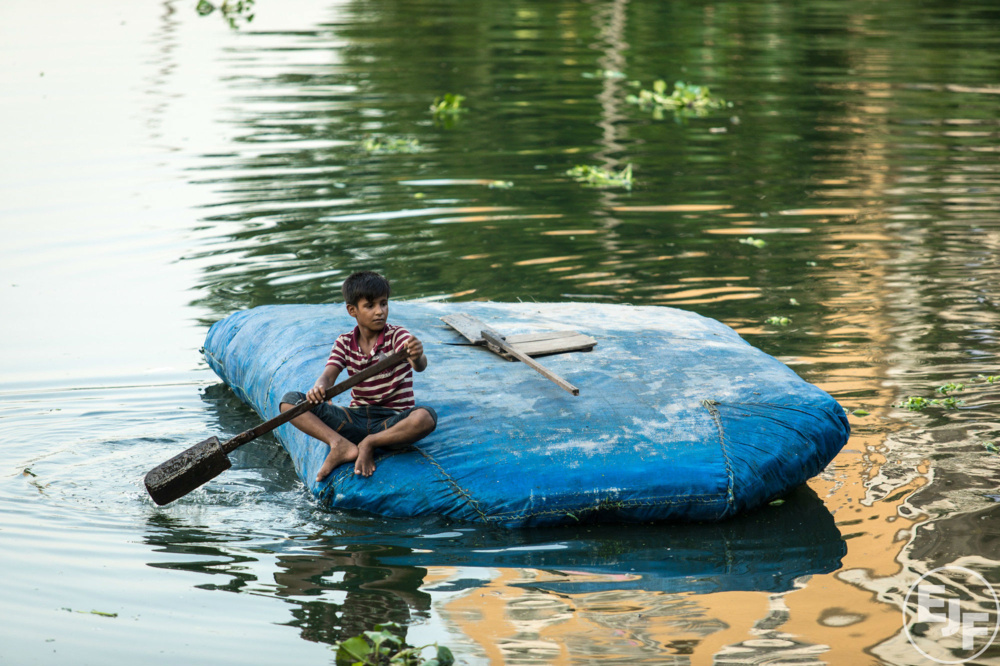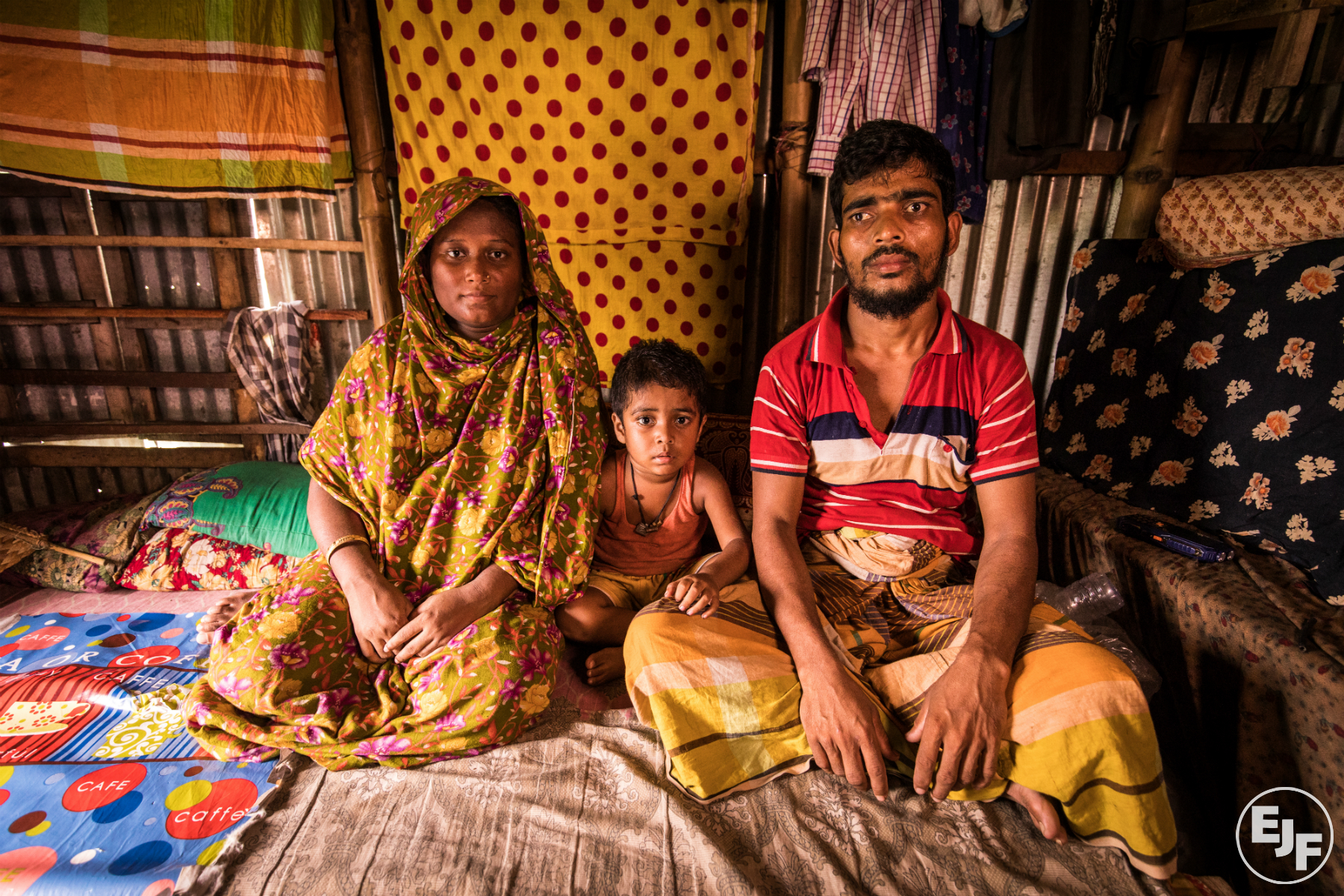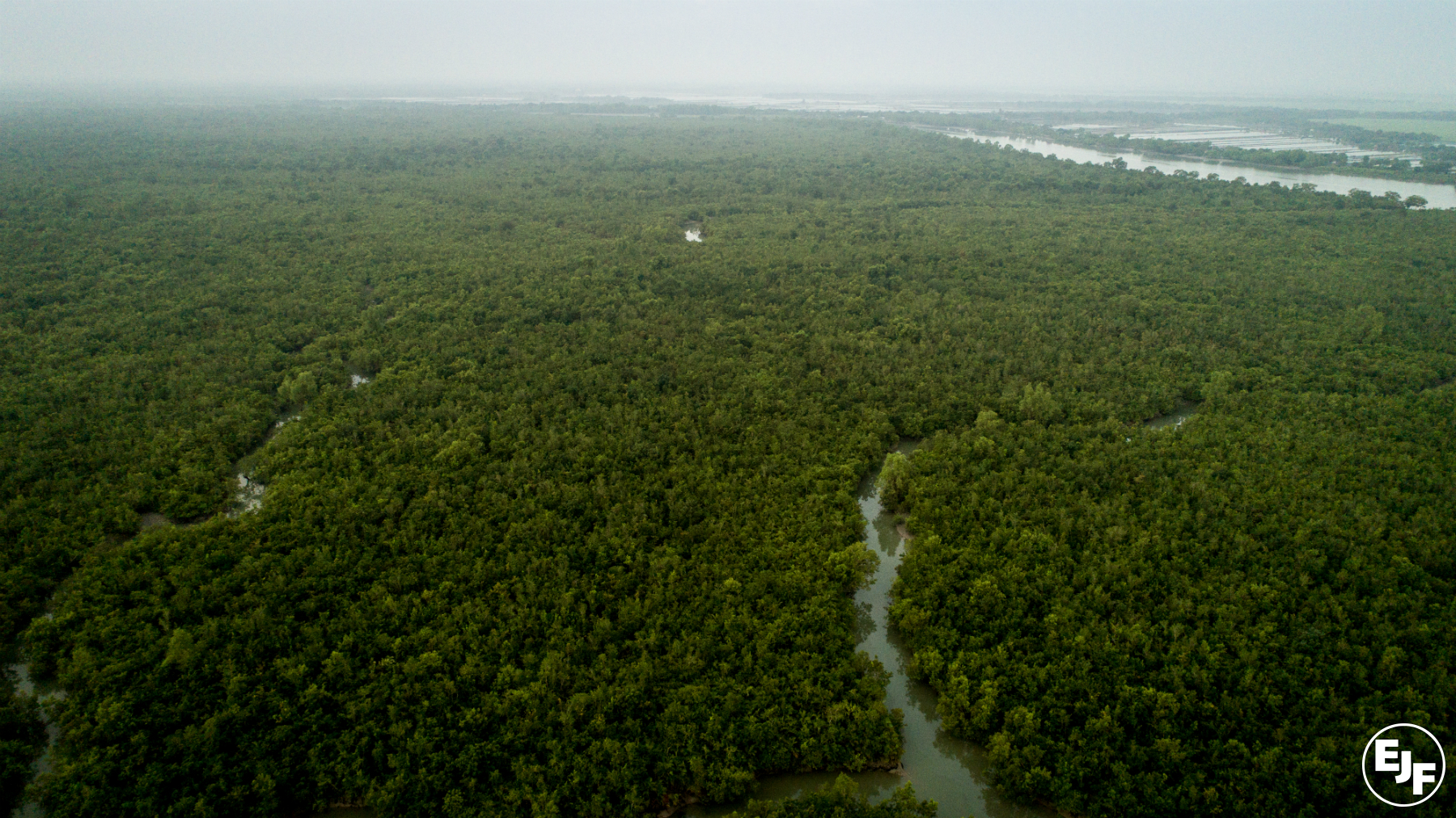
Climate change is an urgent threat to human rights around the world
Today, EJF is commemorating Human Rights Day by calling on all countries to take urgent action to slash carbon emissions in a bid to avoid catastrophic harm to people around the world from the devastating effects of runaway heating of our planet.
Climate change poses a profoundly serious threat to human rights, as damage to our planet leaves millions, many among the poorest, forced from their homes and struggling to survive.
The current meeting of nations on climate change in Poland is failing to produce the drastically increased ambition on emissions cuts which is so urgently needed. Indeed, some like the United States, Russia, Saudi Arabia and Kuwait seem intent on rolling back commitments and undermining the historic agreement reached in Paris by world leaders in December 2015.
So we are faced with the disastrous news that current pledges will lead to at least 3°C of global warming, causing dangerous sea level rises and extreme weather that will force millions more people to leave their homes in search of safety.
Communities are being placed in harm’s way by the lack of ambition and leadership from governments around the world. Rising temperatures are damaging ecosystems, pushing sea levels higher, and reducing people’s ability to support themselves on their land. Already, millions of people are forced to move from their homes because of natural disasters, which will become more frequent and severe as the planet heats up.
Women and girls at risk
The equality of all people, regardless of gender or race, is essential to the declaration of human rights. Yet it is abundantly clear that climate change has a broader, deeper and more severe impact on women and children, who are already at higher risk of poverty.
Women are more likely to go without food as climate-induced shortages kick in, or to die in natural disasters such as floods. As rising sea levels contaminate drinking water in coastal villages in Bangladesh, women who cannot afford to move further inland suffer from a higher rate of miscarriage.
Young children in poorer countries are at the highest risk from climate-sensitive diseases such as malaria, while rising temperatures also threaten the ability of communities to provide clean drinking water and enough food for their children.
As temperatures rise and rains either fail, bringing extended drought or come in explosive storms subsistence farming which used to provide income to feed families and educate children will no longer be sufficient. Facing hunger and destitution as crop yields and food supplies plummet, some desperately poor families with no other options for survival decide to take their young daughters out of school to be married off as child brides. Once married and pregnant, and denied the opportunity to complete their education, these young girls and their children remain trapped in a cycle of desperate poverty.
For some of the world’s poorest people – who struggle to feed their families as climate change damages their land, or who face the risk of violence as resource scarcity pushes regions towards conflict – remaining in their homes, within their own country, will threaten their lives.
When people on the frontline of climate change are forced to leave their homes, they face a new set of dangers. Women crossing borders in an attempt to find safety are placed at risk of sexual violence and exploitation. Children, particularly girls, are extremely vulnerable in refugee camps, where they face violent assault, discrimination and rape.
“Climate change is already harming people around the world, ” said EJF Executive Director Steve Trent. “From children living in appalling conditions in refugee camps, to families who survive on subsistence farming watching their livelihood disappear, horrendous damage is being inflicted on vulnerable people. We cannot allow the global injustice of climate change to continue, with the poorest suffering as the richest delay cuts to carbon emissions. As this meeting aimed to prevent runaway global warming approaches its close, countries have just so little time left to ramp up their ambition on emissions cuts and avoid climate chaos. EJF is calling on all nations to act now, at the meeting in Katowice, to ensure a safe future for all people around the world – for it is certain we will all feel the damning consequences of climate change.”
- Sign our petition to call for action on climate and protection for climate refugees
SIGN UP FOR OUR EMAILS AND STAY UP TO DATE WITH EJF

